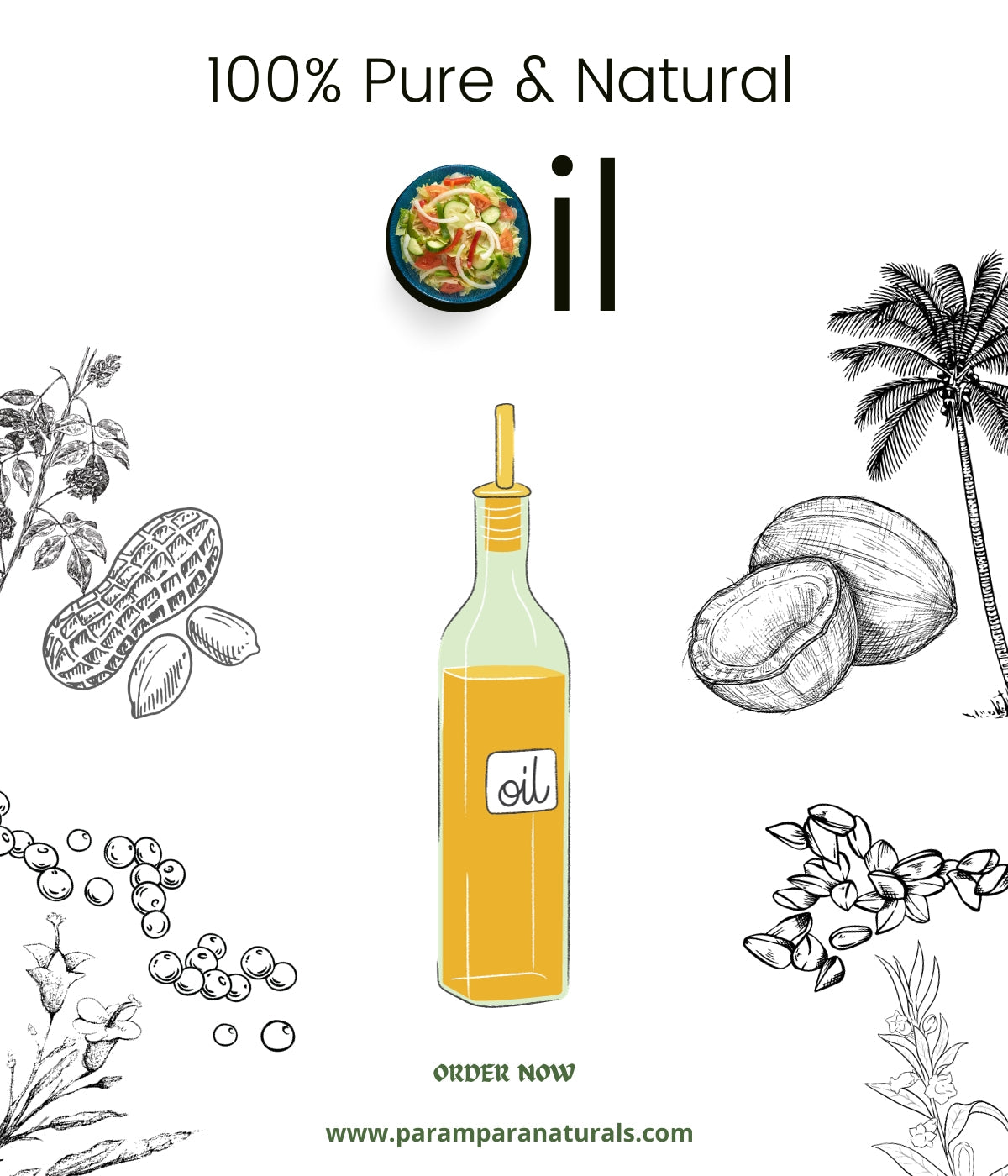The Processing of Refined Oils: What’s Really Happening Behind the Scenes?
We all use oils in our daily cooking, but have you ever wondered what goes into making refined oils? Behind the convenience and neutrality of these oils lies a process that might not be as clean and healthy as you think. In fact, the production of refined oils is far from hygienic, and these oils are often loaded with chemicals that pose serious health risks.
This blog will uncover what really happens behind the scenes in the refined oil processing industry and how these oils are potentially dangerous for your health.
The Dirty Process Behind Refined Oils
Refined oils are commonly used in kitchens worldwide because they are neutral in flavor, versatile for high-heat cooking, and generally cheaper than other options like cold-pressed oils.
But these oils come with a dark side that’s rarely discussed. Here’s what really happens when you process oils like soybean oil, canola oil, sunflower oil, rice bran oil and palm oil.
Step 1: Extraction with Solvents
The first step in the refined oil process involves extracting oil from seeds or plants. While cold-pressed oils are extracted through mechanical pressing, refined oils often undergo chemical extraction. The most common chemical used in this process is hexane, a highly flammable solvent. Hexane is used to dissolve the oil from seeds, resulting in an oil that is further processed in the next stages.
Hexane is a petroleum by-product, and although it's supposed to be removed during processing, traces of this toxic chemical can remain in the final product. Consumption of hexane-contaminated oils can contribute to neurological problems, and even cancer over long-term exposure.
Step 2: Degumming and Neutralizing
Once the oil is extracted, it undergoes a process called degumming, which removes impurities like phospholipids and other natural substances. The oil is then neutralized to remove free fatty acids, often by using alkalized solutions like sodium hydroxide.
These processes make the oil more stable and give it a neutral flavor, but they also contribute to the oil's depletion of nutrients. Many of the healthy fats and antioxidants that naturally occur in the seeds are destroyed.
Step 3: Bleaching and Deodorizing
After neutralizing, the oil is bleached to remove any color, which might not look appealing to consumers. But the bleaching process isn't as clean as it sounds. It typically involves the use of clays, which are not only non-edible, but can also contain chemicals that further degrade the oil. This process strips away any remaining vitamins and nutrients in the oil.
Then comes deodorization, which uses high heat and steam to remove unpleasant smells. While this step eliminates odors, it also causes the formation of harmful compounds like trans fats. These trans fats are artificial fats created during the high-heat process, and they are well known to contribute to heart disease, diabetes, and obesity.
Step 4: Chemical Additives
Finally, after these harsh treatments, refined oils often contain chemical additives. Some oils may be artificially flavored, colored, or preserved using chemicals to ensure they have a longer shelf life. Some of these chemicals include butylated hydroxy toluene (BHT) and butylated hydroxy anisole (BHA), which are preservatives linked to cancer and other chronic diseases.
Adverse effects of consuming refined oil on health
Now that you know how refined oils are processed, let’s talk about the health hazards they bring to the table. Here’s why the oils you cook with may be more harmful than you think:
1. Chemical Exposure
The use of solvents like hexane and other chemicals during the extraction process leaves traces in the final product, which can harm your body over time. Exposure to these chemicals may lead to various neurological disorders, including headaches, dizziness, and even nerve damage in extreme cases. Long-term consumption of these chemicals may even increase the risk of cancer.
2. Trans Fats: A Silent Killer
One of the most dangerous byproducts of the refining process is the creation of trans fats. These fats are unnatural and increase your bad cholesterol (LDL) while lowering your good cholesterol (HDL), making them a major contributor to heart disease, stroke, and type 2 diabetes.
Trans fats are so harmful that many countries have now placed strict limits on their use in food products. However, they still remain in many refined oils, especially those used for frying and fast food preparation.
3. Loss of Nutrients
Unlike cold-pressed oils, which retain their nutritional profile—including vitamins, minerals, and antioxidants—refined oils go through so many processing steps that they lose most of their health benefits. The refining process strips the oil of its vitamin E, polyphenols, and other vital nutrients that are essential for immune function, skin health, and cell regeneration.
4. Increased Inflammation and Chronic Diseases
The high levels of omega-6 fatty acids found in many refined oils can lead to inflammation in the body when consumed in excess. Chronic inflammation is a major risk factor for several diseases, including heart disease, diabetes, arthritis, and obesity.
Refined oils are often consumed in large quantities in processed and fast foods, which makes it difficult to maintain a healthy balance of omega-3 and omega-6 fats in the diet. This imbalance contributes to increased inflammation and the risk of chronic diseases over time.
5. Hormonal Disruption
Another hidden danger of refined oils is their potential to disrupt hormonal balance. Some refined oils, especially soybean oil and canola oil, are high in phytoestrogens—plant-based compounds that can mimic estrogen in the body. Hormonal imbalances caused by these compounds may contribute to conditions like endometriosis, PCOS, and even breast cancer in some cases.
Is Refined Oil Worth the Risk?
After understanding the dirty processes and the toxic chemicals involved in the making of refined oils, it’s clear that they may not be the healthiest option for your body. These oils are not only depleted of nutrients but also contaminated with harmful chemicals, trans fats, and oxidized compounds that pose a significant risk to your health.
If you're looking to improve your health and avoid potential long-term diseases and disorders, it’s best to choose Parampara Naturals cold-pressed oils which is made by wood press method. These oils, though more expensive, retain their natural nutrients and don’t undergo harmful chemical processes. Your body will thank you for it in the long run!


